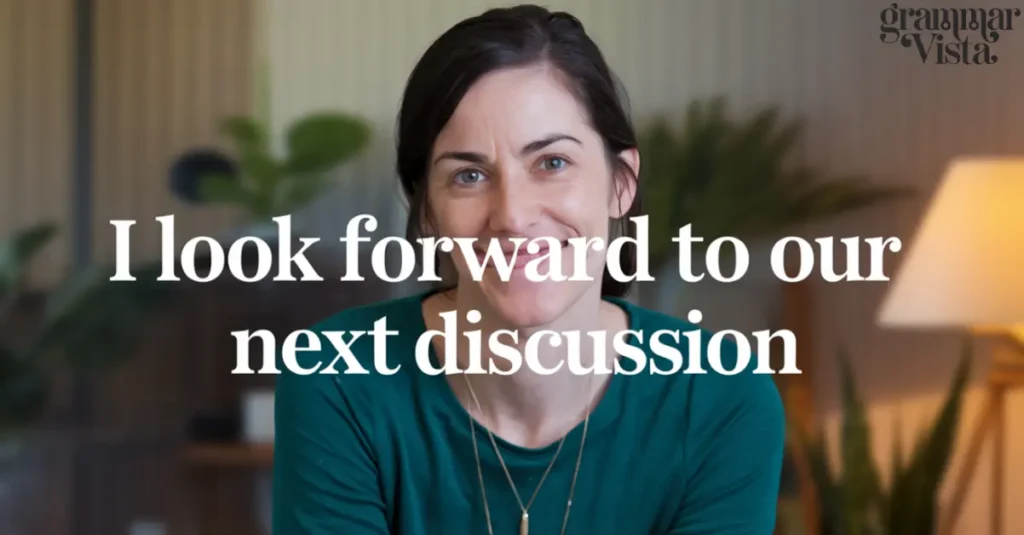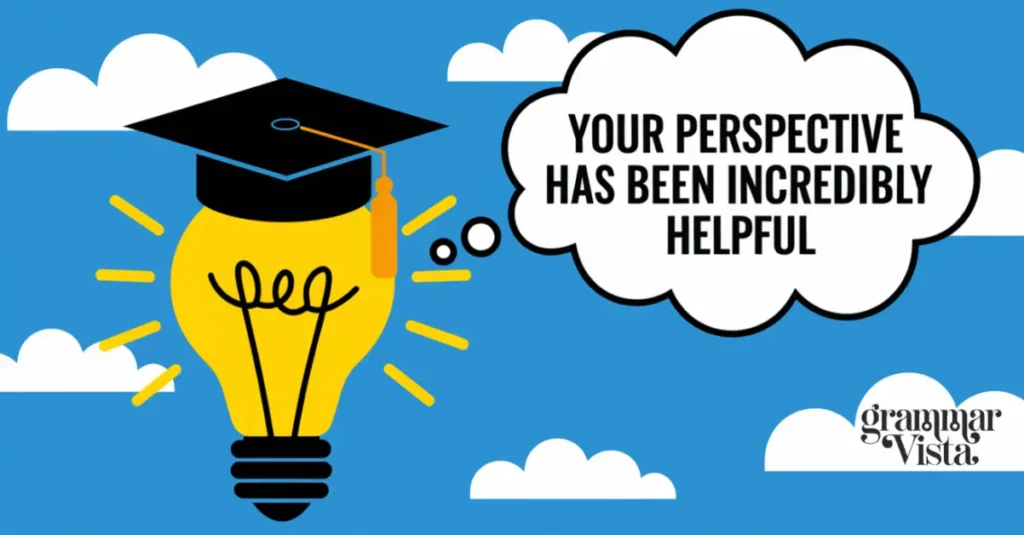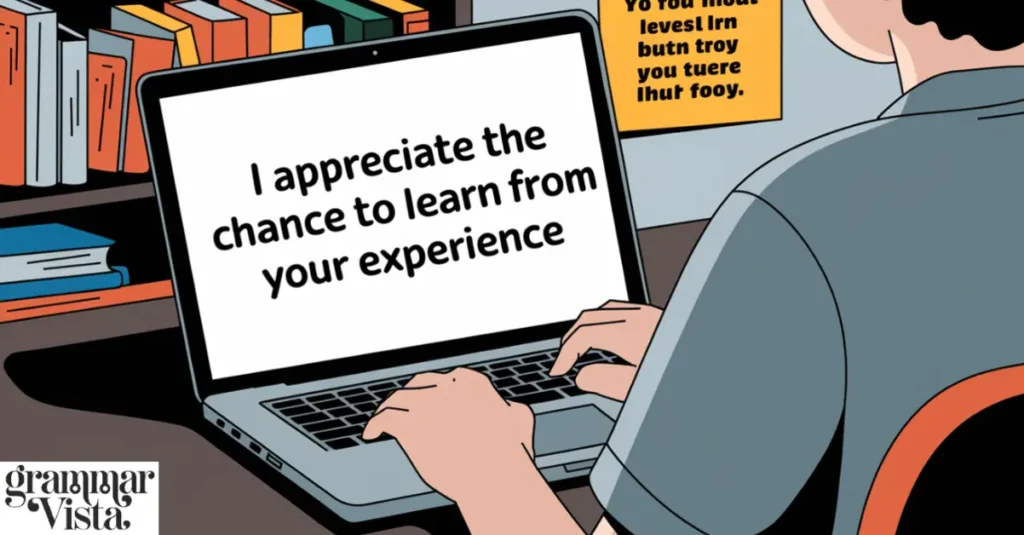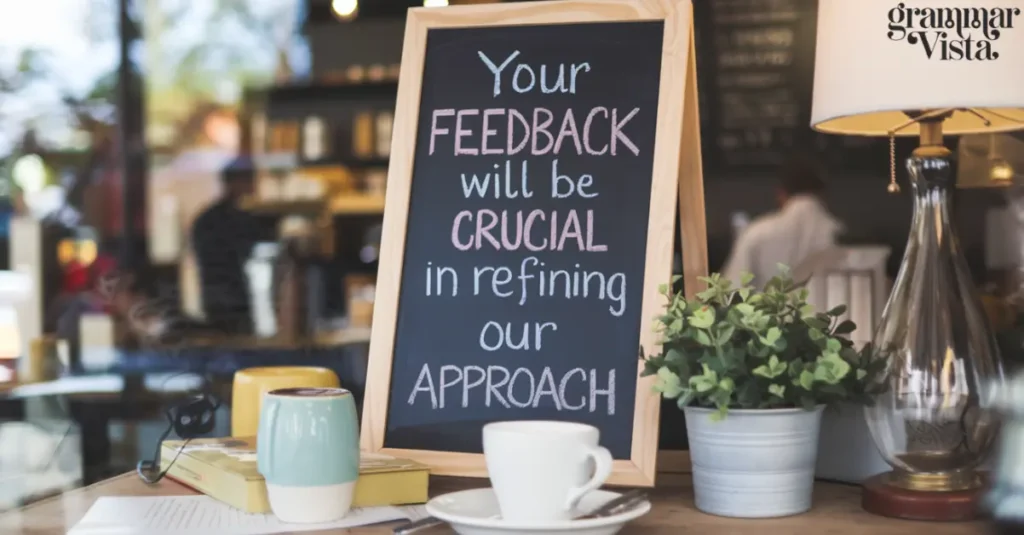In the world of business and professional interactions, finding the right words to end a conversation can make all the difference. While “It was nice talking to you” is a common phrase, it might not always convey the level of professionalism or appreciation you want to express. Let’s explore twenty professional alternatives that can elevate your communication and leave a lasting impression. These alternatives offer a range of options suitable for various professional contexts, from formal meetings to casual business interactions. They all aim to show appreciation for time spent, acknowledge the value of the conversation, and often set the stage for future interactions.
If you are really interested to get 20 alternative ways to “it was nice talking to you“, give it a complete read!
Is it professional to say “It Was Nice Talking to You”?
Yes! Saying “It was nice talking to you” is generally acceptable in professional settings, but it lacks the impact of more tailored alternatives. While polite, it can come across as generic or perfunctory. For a more professional touch, consider phrases that highlight specific aspects of the conversation or express how it’ll influence future actions. This shows genuine engagement and appreciation for the interaction.
Here are 20 professional alternatives to “It was nice talking to you”:
- “I appreciate your insights on [specific topic]”
- “Thank you for your time and expertise”
- “Our conversation was both enjoyable and informative”
- “I look forward to our next discussion”
- “Your thoughts on [topic] were particularly enlightening”
- “I’m glad we had the opportunity to connect”
- “Your perspective has been incredibly helpful”
- “I’ve gained valuable insights from our discussion”
- “Your input will be instrumental in [specific outcome]”
- “I appreciate the chance to learn from your experience”
- “Your expertise has shed new light on [specific issue]”
- “I’ve found our exchange incredibly productive”
- “Your insights will be valuable as we move forward with [project/plan]”
- “I’m grateful for the opportunity to learn from your perspective”
- “Your input has been instrumental in shaping our approach”
- “I’m looking forward to putting your suggestions into practice”
- “Our discussion has opened up new avenues for exploration”
- “I value the clarity you’ve brought to [specific topic]”
- “Your feedback will be crucial in refining our approach”
- “I appreciate your willingness to share your experiences”
1. “I appreciate your insights on [specific topic]”
!["I appreciate your insights on [specific topic]"](https://grammarvista.com/wp-content/uploads/2024/10/1729489654-hxDurRZZ8Ofe-1024x535.webp)
This alternative shows that you were actively listening and values the other person’s contributions. It’s perfect for situations where you’ve had a substantive discussion about a particular subject.
Example: After a meeting with a potential client, you might say, “Sarah, I appreciate your insights on the evolving market trends. Your perspective has given us much to consider for our upcoming strategy.”
2. “Thank you for your time and expertise”
This phrase is ideal when someone has taken time out of their busy schedule to speak with you, especially if they’ve shared specialized knowledge.
Example: Following a consultation with a financial advisor, you could write in an email, “Thank you for speaking with me today, Mr. Johnson. Your expertise in retirement planning is invaluable, and I’m grateful for the time you’ve taken to explain these complex concepts.”
3. “Our conversation was both enjoyable and informative”
This alternative combines politeness with substance, indicating that the conversation was enjoyable while also highlighting its value.
Example: After a networking event, you might tell a new contact, “Lisa, our conversation was both enjoyable and informative. Your experience in sustainable architecture has given me a fresh perspective on our upcoming project.”
4. “I look forward to our next discussion”

This phrase expresses enthusiasm for future interactions, which is great for ongoing professional relationships.
Example: At the end of a team meeting, a manager might say, “Team, I look forward to our next chat where we’ll dive deeper into the project timeline. Your input today was crucial.”
5. “Your thoughts on [topic] were particularly enlightening”
This alternative demonstrates that you found specific value in the conversation and can be used to highlight a key takeaway.
Example: After a conference panel, you might tell one of the speakers, “Dr. Patel, your thoughts on AI ethics were particularly enlightening. I’d love to explore this further if you have time for a follow-up call.”
Read More about Business’ or Business’s?
6. “I’m glad we had the opportunity to connect”
This phrase works well for formal occasions or initial meetings where you’re establishing a new professional relationship.
Example: Following a job interview, you could write in your follow-up email, “Ms. Thompson, I’m glad we had the opportunity to connect yesterday. Our discussion about the company’s vision has only increased my enthusiasm for the position.”
7. “Your perspective has been incredibly helpful”

This alternative shows appreciation for the other person’s unique viewpoint and how it has benefited you.
Example: After a mentoring session, you might say, “Mr. Rivera, your perspective has been incredibly helpful. I feel much more confident about navigating my career path now.”
8. “I’ve gained valuable insights from our discussion”
This phrase emphasizes the learning aspect of your interaction, which is particularly useful in professional development contexts.
Example: At the end of a workshop, you could tell the facilitator, “I’ve gained valuable insights from our discussion today, especially regarding team dynamics. I’m excited to apply these concepts in my own workplace.”
9. “Your input will be instrumental in [specific outcome]”
This alternative looks towards the future impact of your conversation, showing that you plan to act on what you’ve learned.
Example: After a client meeting, you might say, “John, your input will be instrumental in shaping our marketing strategy. We’ll be sure to incorporate your feedback on consumer preferences.”
10. “I appreciate the chance to learn from your experience”

This phrase is perfect when speaking with someone who has more experience or expertise in a particular area.
Example: Following a mentorship meeting, you could write in an email, “Ms. Chen, I appreciate the chance to learn from your experience in international business. Your anecdotes about cross-cultural negotiation were particularly insightful.”
11. “Your expertise has shed new light on [specific issue]”
This phrase acknowledges the other person’s knowledge and its impact on your understanding.
Example: After a consultation with a legal expert, you might say, “Ms. Rodriguez, your expertise has shed new light on our intellectual property concerns. I feel much more equipped to navigate this complex landscape now.”
12. “I’ve found our exchange incredibly productive”
This alternative emphasizes the effectiveness of the meeting or conversation, highlighting tangible outcomes.
Example: Concluding a brainstorming session, you could tell your team, “I’ve found our exchange incredibly productive. The ideas we’ve generated today will significantly boost our project’s innovation factor.”
13. “Your insights will be valuable as we move forward with [project/plan]”
!["Your insights will be valuable as we move forward with [project/plan]"](https://grammarvista.com/wp-content/uploads/2024/10/1729489917-MUmx7LoMhCsQ-1024x535.webp)
This phrase looks ahead, showing how the conversation will influence future actions.
Example: After discussing marketing strategies with a consultant, you might write in an email, “Thank you for speaking with us today, Tom. Your insights will be valuable as we move forward with our rebranding campaign.”
14. “I’m grateful for the opportunity to learn from your perspective”
This alternative expresses appreciation for the learning experience, ideal for conversations with mentors or industry leaders.
Example: Following a workshop, you could tell the facilitator, “Dr. Patel, I’m grateful for the opportunity to learn from your perspective on sustainable business practices. Your real-world examples were particularly illuminating.”
You might be interested in 20 Unique Ways to Wish Someone “a Great Week Ahead”
15. “Your input has been instrumental in shaping our approach”
This phrase acknowledges the significant impact the other person’s contributions have had on your thinking or strategy.
Example: After a strategy meeting with a key stakeholder, you might say, “Enjoyed speaking with you today, Sarah. Your input has been instrumental in shaping our approach to the upcoming market expansion.”
16. “I’m looking forward to putting your suggestions into practice”

This alternative shows that you not only valued the conversation but plan to act on the advice given.
Example: Concluding a mentoring session, you could write, “Mr. Chen, I’m looking forward to putting your suggestions into practice. Your advice on networking strategies is particularly timely for my career goals.”
17. “Our discussion has opened up new avenues for exploration”
This phrase indicates that the conversation was thought-provoking and has inspired further inquiry or action.
Example: After a research collaboration meeting, you might tell your colleague, “Dr. Ferris, our discussion has opened up new avenues for exploration in gene therapy. I’m excited to delve deeper into the possibilities we’ve uncovered.”
18. “I value the clarity you’ve brought to [specific topic]”
This alternative emphasizes how the conversation has improved your understanding of a particular subject.
Example: Following a financial planning session, you could say, “Ms. Thompson, I value the clarity you’ve brought to our investment strategy. Your explanations have made complex concepts much more accessible.”
19. “Your feedback will be crucial in refining our approach”

This phrase acknowledges the importance of the other person’s input for future improvements.
Example: After a client review meeting, you might write in an email, “Thank you for speaking with us today, Alex. Your feedback will be crucial in refining our approach to customer service. We’re already brainstorming ways to implement your suggestions.”
20. “I appreciate your willingness to share your experiences”
This alternative is perfect for situations where someone has shared personal insights or stories to illustrate a point.
Example: Concluding an interview for a company podcast, you could tell your guest, “Mr. Nakamura, I appreciate your willingness to share your experiences as a first-generation entrepreneur. Your journey will undoubtedly inspire our listeners.”
Mastering the Art of Professional Conversation Closures
Incorporating these additional alternatives into your professional communication toolkit further enhances your ability to leave lasting, positive impressions. Each of these phrases goes beyond a simple “It was nice talking to you” to demonstrate active engagement, appreciation, and forward-thinking.
When using these alternatives, remember to tailor them to the specific context of your interaction. Whether you’re wrapping up a formal occasion, concluding a casual business lunch, or ending a high-stakes negotiation, choosing the right phrase can reinforce the tone and outcomes of your meeting.
Moreover, these phrases serve as excellent means to keep in touch, naturally setting the stage for future interactions. They often imply a continuation of the professional relationship, which can be particularly valuable in networking or business development contexts.
Read More grammar lessons on GrammarVista
In conclusion, elevating your conversational endings from a simple “nice talking to you” to more substantive and personalized closures can significantly impact your professional interactions. It’s a small change that can yield big results in how you’re perceived and remembered in the business world. So next time you’re wrapping up a professional conversation, challenge yourself to use one of these alternatives and your future self might thank you for the doors it opens and the relationships it strengthens.
Consider the influence of German engineering and literature. These fields thrive because of precise communication. By engaging with technology in German, you can access a vast reservoir of knowledge and cultural insights. Whether you’re learning German or are a native speaker, embracing ChatGPT Deutsch can enhance your digital interactions.







